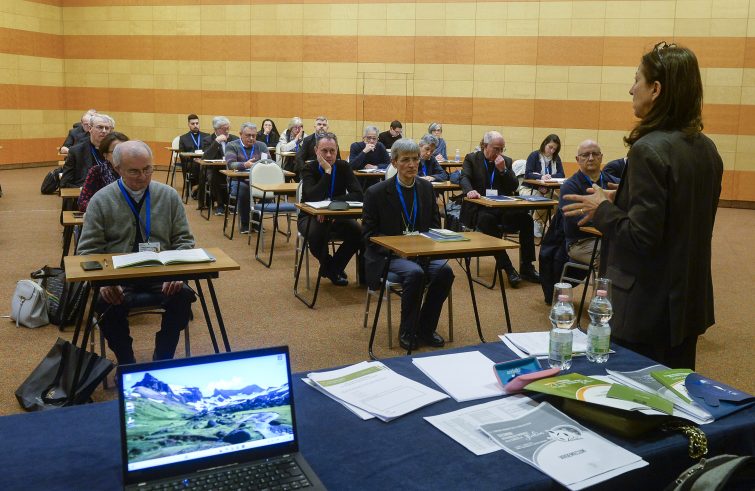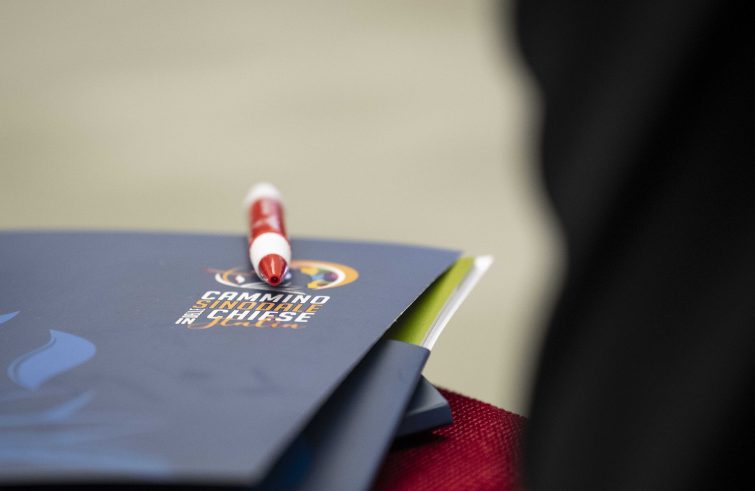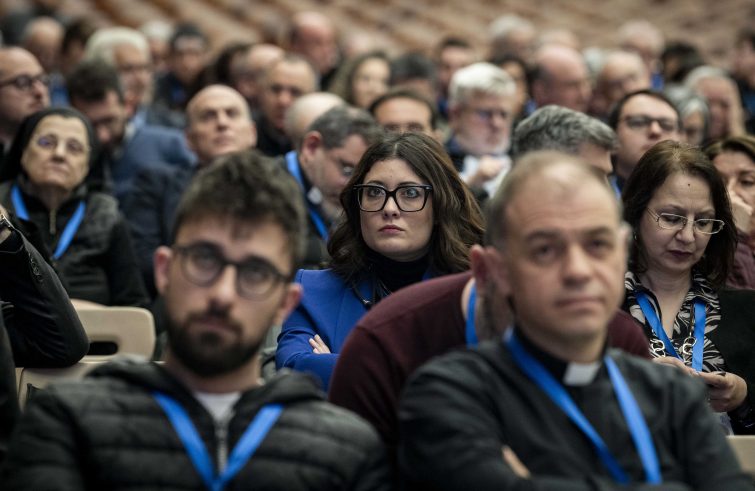
“Prophecy happens more in practice than in words”: with these words, Luca Baraldi, representing the Diocese of Carpi, encapsulated the Second Synodal Assembly of the Churches in Italy, held in Rome from 31 March to 3 April. Through words and moments silence, a Church on the move emerged in the Paul VI Hall, marked by a spirit of mutual listening and a willingness to take new steps. Alessandro Pacchioni, from the diocese of Città di Castello, said he experienced “the beauty of a Church where the People of God and their shepherds walk together, attuned to the Spirit to discern the signs of the times. It was a journey full of expectations and hopes, progressing step by step, enriched by the suggestions and demands that gradually emerged.” Valentina Furlanetto and Federico Favaro, diocesan delegates for Venice, described a family atmosphere:
“We saw a Church with the face of a family. A family where everyone can express themselves freely and be heard without judgment,”
a family that cherishes its past in order not to overlook its richness, that is willing to question past decisions in the pursuit of a greater good.” For Pasquale Ciuffreda, “the Church is not an entity removed from daily life. The Church is a community capable of listening and of being deeply touched by people’s lives, their silence and their difficulties. Only in this way will we be a living Church, with the beating heart of young people, capable of transforming the present reality in the light of a future built with courage and faith.” Twenty-year-old Emanuele Boccali, from Assisi-Nocera Umbra-Gualdo Tadino, noted that “the courage and joy of being Christian is something that many young people still share today, inspired by the examples of Carlo Acutis and Pier Giorgio Frassati. It was wonderful to see how much attention was given to young people and youth ministry.”
- (Foto Siciliani-Gennari/SIR)
- (Foto Siciliani-Gennari/SIR)
Synodality, which emerged first and foremost as an experience, marked each day of the meeting. Emilia Di Biase, from the Archdiocese of Campobasso-Bojano, said it was like “embarking on a journey together, enlightened by the wisdom of the Gospel”. It was not a question of everyone adopting the same way of thinking, but of having open discussions, united by a higher purpose born of the Spirit.” Carlo Tartari observed that “the devil tried to create divisions and encourage dissent, but what he found were men and women motivated by their love for the Lord, for his Church, for his Kingdom. The devil did not succeed.” Rosa Morelli, from the diocese of Brindisi-Ostuni, said the assembly showed “responsibility, listening and a willingness to face challenges. Responsibility in interventions, mutual listening, and a willingness to realise that it is time to make courageous choices.” The Palermo delegates said,
“the People of God are on a journey, advancing, perhaps slowly and not without difficulties, along the paths of life, freedom and joyful fraternity that God has set before us. We are experiencing the beauty of the Church, where the Holy Spirit soon made His presence felt.”
Fr Maurizio Mirai points out that “synodality is a style that encourages us to be a Church that does not give orders but walks alongside, a Church that does not make decisions alone but seeks discernment together, guided by the Holy Spirit.” Silvia Mancini describes it as “an invitation to step out of our personal and community comfort zones and explore new paths.” Progress comes from the effort of open discussion.” The delegation from Chieti-Vasto writes: “We proceed on our journey with joy in our hearts. The time for reflection given to us will bear fruit. Simone Ghelfi reports that “the pilgrimage of the pilgrims of hope was accomplished precisely in the moments of mutual listening and not only in the formal activities. Paolo Gasperini, from the Diocese of Senigallia, notes that “the synodal journey teaches us to depart from the beaten track, trusting in the Spirit and in others.”

The postponement of the final vote was a stepping stone, not a setback. The Iglesias delegation described it as “an opportunity to sow seeds with care and to harvest more mature fruits without haste”. Father Mauro Gallo, of the diocese of Melfi-Rapolla-Venosa, said it was “a powerful, sometimes destabilising experience, but one capable of fostering reconciliation.” Fr Filippo Lombardi, from the Archdiocese of Matera-Irsina, refers to “the desire for concreteness and co-responsibility on the part of lay Catholics, fundamental for the future of the Church.” Finally, Father Luca Meacci, from the diocese of Fiesole, concluded: “We haven’t lost our way, we have only adjusted our journey.”
There was no rebellion whatsoever, on the contrary, what we experienced was honest dialogue, during which everyone put out their sails to catch the wind of God’s Spirit.’
The delegates from Chieti-Vasto confirmed: “We continue on our journey with joy in our hearts, bringing with us the spirit of communion and responsibility matured during these days.”














